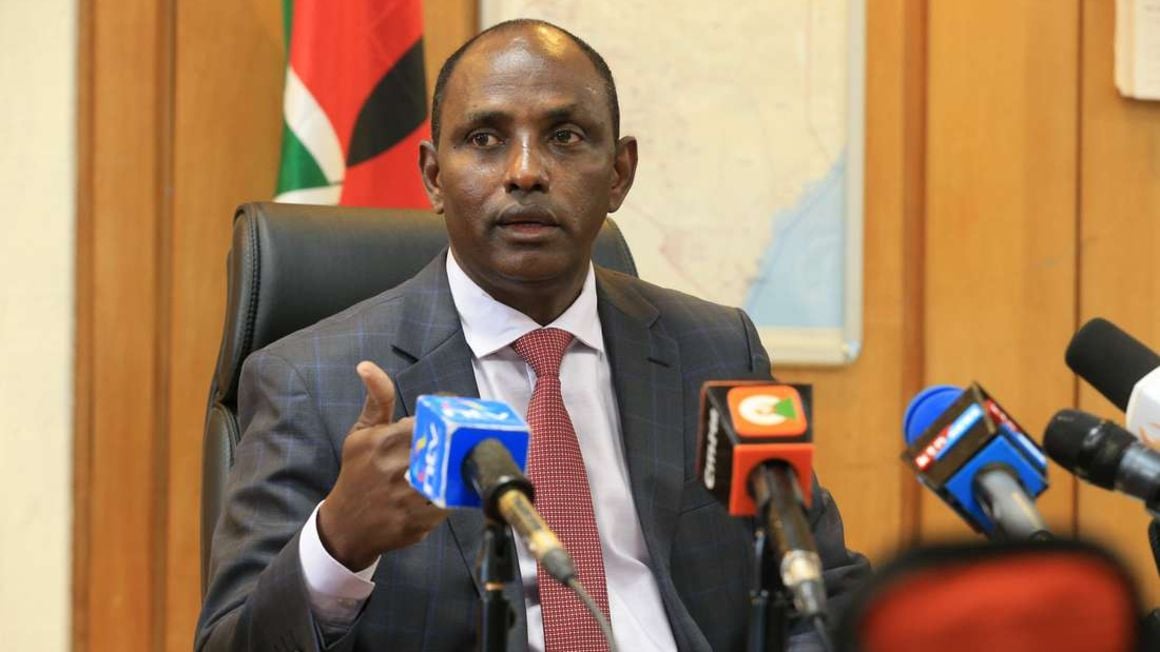
Treasury Cabinet Secretary Ukur Yatani. FILE PHOTO | NMG
Summary
- The latest growth outlook by Barcelona-based FocusEconomics — based on data compiled from 15 global banks, consultancies and think-tanks — is a 0.3 percentage point upgrade from the previous projection in September.
- Inflation in the July-September period averaged 4.3 percent (well within 2.5-7.5 percent target), the Kenya National Bureau of Statistics reported.
- A monthly Stanbic Purchasing Manager index suggested firms on average paused job cuts last month for the first time since April.
Kenya’s economic activity rebounded in the three months to September from a sharp contraction in the second quarter on progressive re-opening of businesses from July, global economists say, projecting a 1.2 percent full-year growth.
The latest growth outlook by Barcelona-based FocusEconomics — based on data compiled from 15 global banks, consultancies and think-tanks — is a 0.3 percentage point upgrade from the previous projection in September.
“Available data for Q3 (third quarter) suggests that the downturn likely bottomed out in Q2 (April-June). Private-sector business conditions recorded a marked improvement in Q3, buttressed by strengthening external demand in September, particularly from Europe and the Middle East,” analysts at FocusEconomics wrote in the outlook report on Kenya released late Tuesday.
“Moreover, employment ended its six-month decline in September, which, coupled with inflation ticking down during the quarter, likely supported household spending.”
Inflation in the July-September period averaged 4.3 percent (well within 2.5-7.5 percent target), the Kenya National Bureau of Statistics reported.
A monthly Stanbic Purchasing Manager index suggested firms on average paused job cuts last month for the first time since April.
The social distancing measures imposed on March 25 hammered corporate sales — which were already falling even before the virus struck — thinning their revenue streams and threatening the survival of many companies as a going concern.
To stay afloat, a majority of firms had resorted to laying off workers, slashing salaries and adopting unpaid leave policies to cut operating costs amid depressed demand.
President Uhuru Kenyatta on July 6 started a phased reopening of the country, lifting restrictions on travel in and out of Nairobi and Mombasa as well as allowing domestic and international air travel to resume.
“After a tepid performance this year, the economy is forecast to rebound strongly next year on the back of firming external and domestic demand and regional financial aid,” the analysts said.
Recovery from the Covid-19 economic fallout is, however, forecast to be slower than earlier expected, with consensus outlook for 2021 now at 4.9 percent.
This is a 0.2 percentage-point drop from an earlier forecast in September before delayed KNBS data showed the economy shrank 5.7 percent in the second quarter.
Economists at South Africa’s Standard Bank (which trades locally as Stanbic) are the most optimistic on Kenya’s recovery next year with a forecast of 5.9 percent, followed by US’s JPMorgan, which sees a 5.8 percent growth, according to the report by FocusEconomics.
New York-based brokerage house Citigroup Global Markets has projected a 5.6 percent growth, while UK’s Capital Economics and Switzerland-based Julius Baer have forecast a 5.5 percent growth.
Washington-headquartered consultancy DuckerFrontier and Standard Chartered both expect Kenya’s GDP to expand 5.4 percent next year, while Paris-headquartered BNP Paribas and Goldman Sachs both project a 5.2 percent growth.
Others are Oxford Economics (5. 1 percent), London-headquartered Euromonitor International (4.8 percent), UK’s HSBC (4.5 percent), Fitch Solutions (4.4 percent) and Moody’s Analytics (3.7 percent).
Economist Intelligence Unit (EIU) is the least optimistic with a forecast of 2.0 percent.




No comments :
Post a Comment